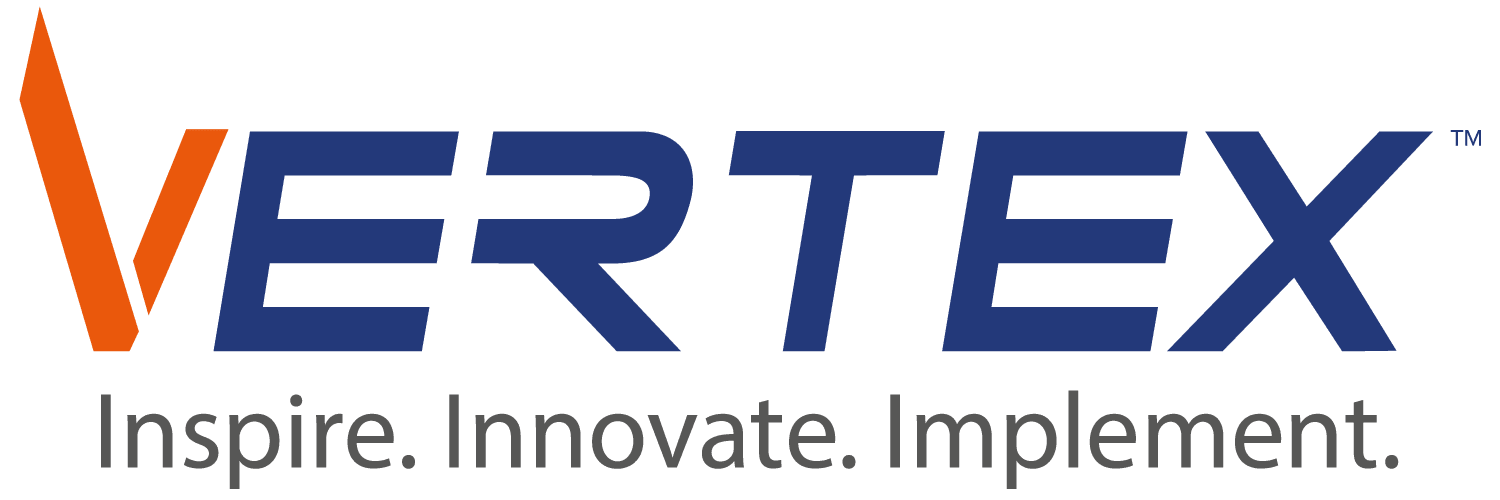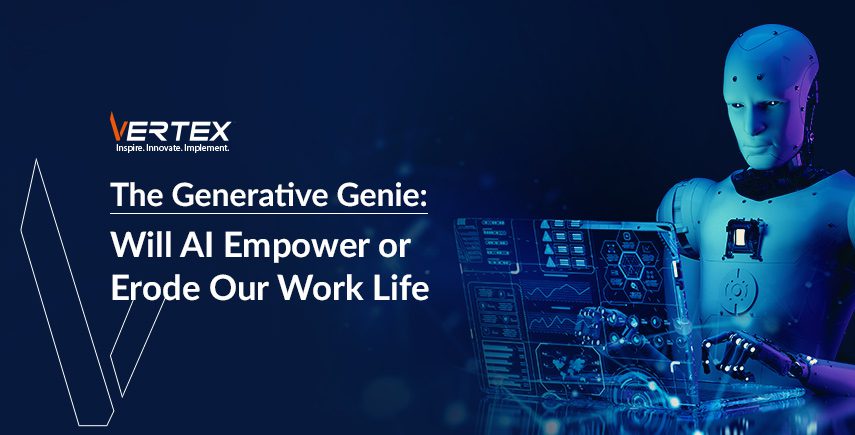
Sudip Nandy
April 14, 2025The Generative Genie: Will AI Empower or Erode Our Work Life
In the Iron Man movie, the favorite thing for me was JARVIS.
An AI assistant that can talk to you, handle your work, and take care of business, all just by simply talking to it.
Now, in 2025, AI has progressed so much that we all have access to our very own AI agent.
Though not as advanced as Jarvis, give them a couple of years and they will be.
Today’s AI models can generate text, images, data, and more with simple one-line prompts.
While it is fun to have and use in our day-to-day life, we cannot ignore the fact that AI has automated a lot of work that we, as humans, used to perform.
What do you think?
Is AI going to take over our jobs, or will it be an asset that helps us do our jobs more productively and efficiently?
Many AI experts and academics have been debating this question since the dawn of AI.
In this article, we will examine the impact of both the good and the bad.
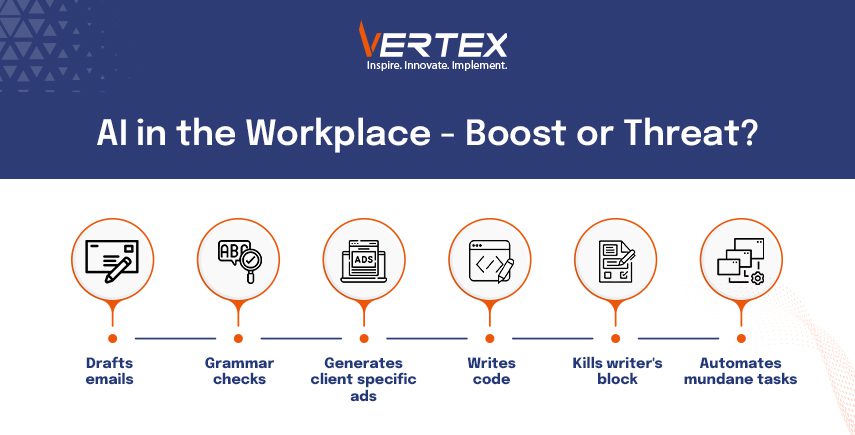
Unleashing Human Potential: The Productivity Surge
From the time functional AI models were introduced, people were excited and quickly used and incorporated them into their workflows.
We started out small, asking for grammar checks or drafting out emails.
Fast forward to today, where a marketing professional can generate ads specific to the client with just a series of prompts, or a software developer can produce any kind of code they desire simply by asking the AI model.
We have made a remarkable stride in what AI models can do now.
Generative AI, if used properly, can automate our most mundane work, and with the resources that are freed, we can tackle more complex problems.
AI is used now to research, fix, and generate ideas from scratch.
I use AI to get rid of my writer’s block, so in this scenario, AI is not taking our jobs.
AI is simply taking on the mundane work, which is allowing us to focus on other tasks at hand, tasks that require our undivided attention.
The Shifting Sands of Labor: Job Transformation and Displacement
The generative guru is really good at their job, and that is what scares the majority of people.
They are aware that AI can boost productivity, but what concerns them is that, with such high accuracy and efficiency, companies will use AI in conjunction with modern machines to automate the entire process.
Humans can never match the proficiency of an AI model, and that is scary for most people.
According to the ResearchGate study, the sectors that will face significant disruption to their workforce and economy are content creation, data processing, and certain forms of analysis.
After AI, some jobs will become redundant, and humans will be asked to have an impressive set of skills to be a part of the workforce.
Now, do not decide yet, what we discussed earlier is just one perspective.
The other side of the story is that AI will save us from the unproductive labor of repetitive tasks, which will enable us to focus on the more important aspects of our work and lives.
The key to overcoming this fear is to understand AI and leverage it to strengthen and enhance our skills.
Another point to note is that with AI emerging in our workplace, it will also create more vacancies for implementing, supervising, and managing these systems.
If we train our workforce to be compatible with AI and help them transition into the new and revised workflow, then we will not have to worry about anything.
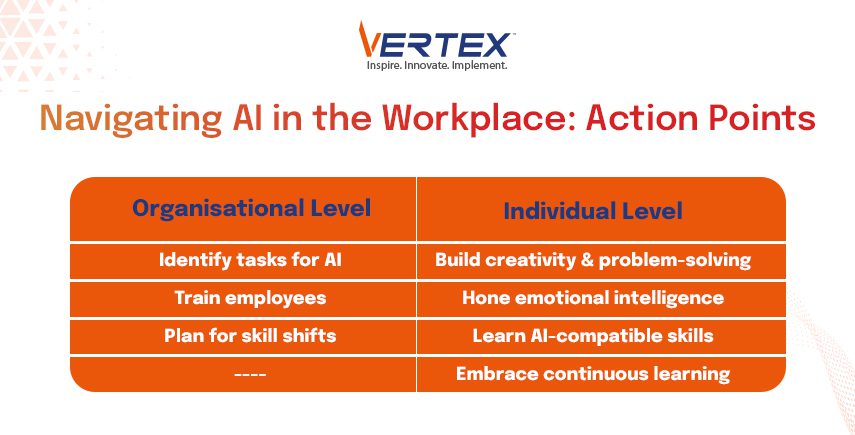
Navigating the Ethical Maze: Responsibility in the Age of AI Creation
Now that we have covered the job security aspect of AI in our workplace, we need to discuss and understand the ethical and social implications of AI.
Let us explain that each and every AI is trained on a specific dataset, and these datasets can be of any kind.
There is a significant possibility of bias and incorrect output.
There is also concern that generative AI will be used in deepfakes, posing a threat to privacy.
There is a lot more.
There is no law dictating the intellectual rights of the content generated by AI, and it is still a major issue since anyone can use AI to create anything without accountability.
Since AI is now being incorporated into our organisations, there is a need for ethical guidelines, privacy clauses, and regulatory frameworks.
This needs to be figured out before moving ahead.
We can’t just give AI the entire company’s or employees’ data.
There should be checks in place to protect privacy and to establish a framework that can be used for a safer implementation of AI within the organisation.
Charting the Course: Strategies for a Generative AI-Powered Future
The integration of AI in any organisation and workplace requires attention at both the organisational and individual levels.
Businesses must ensure that their employees are properly trained to handle the new workflow, so they can adapt to the changes.
One can do this by identifying the tasks ripe for AI and also by helping create a pathway that will help the employees transition into roles where they have to work with AI.
The ResearchGate study emphasizes the need for companies to strategize for workforce transformation, anticipating future skill demands and investing in relevant training programs.
On an individual level, you can work on embracing skills that will complement AI capabilities.
Skills like Creativity, problem-solving, and emotional intelligence honing these skills along with AI skills will convert you to a valuable assed to the organisation.
Once we have embraced continuous learning, we will not see AI as a threat; instead, we will see it as a powerful tool.
Such a tool can be very helpful in turning raw thoughts into a refined workflow and a lot more.
The Horizon Beckons: The Evolving Partnership Between Humans and AI
The future is only stable when there is a balance between humans and generative AI.
In the future, there will be more integrated and sophisticated AI models that will have more personalization and multimodal capabilities.
All this will be integrated into our workflow, and the line that separates AI and humans will become more ambiguous.
The productivity of the future AI models will be on another level, and the personalization of the query response will be tenfold from now.
However, this will all be possible only when we make the right choices; if we embrace AI for its knowledge, precision, and potential, we can achieve a whole lot more.
Furthermore, if we as humans do not put up checks in the integration of AI in our workflow, we can lose a lot more.
The answer that you are looking for lies in the ability to approach AI with ethical consideration and with the commitment to making humanity great.
Recent Blogs
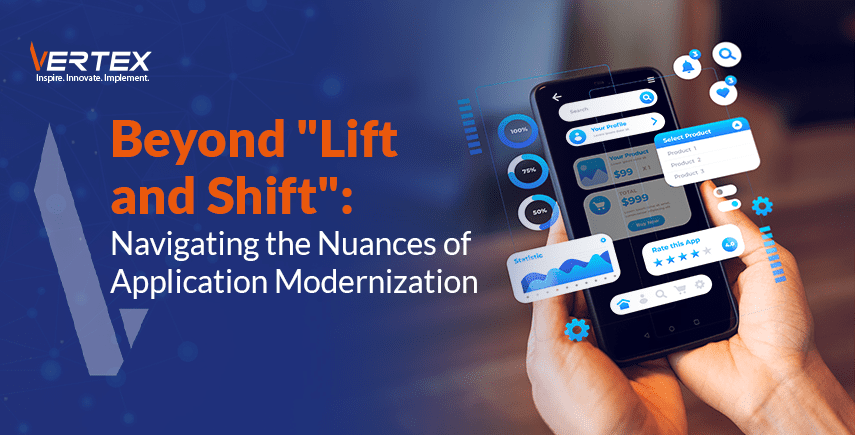
19 May, 2025
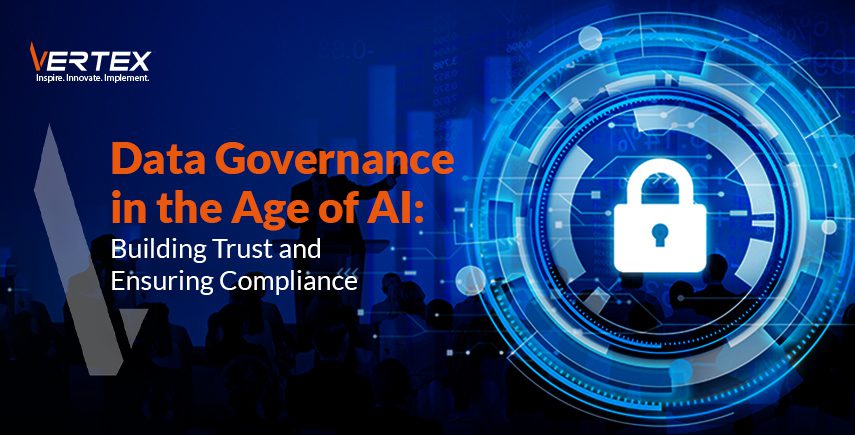
19 May, 2025

12 May, 2025

5 May, 2025
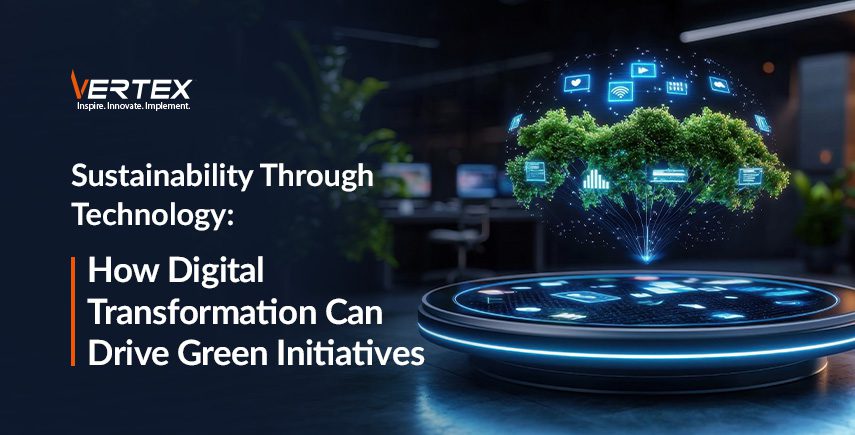
28 April, 2025

21 April, 2025

14 April, 2025
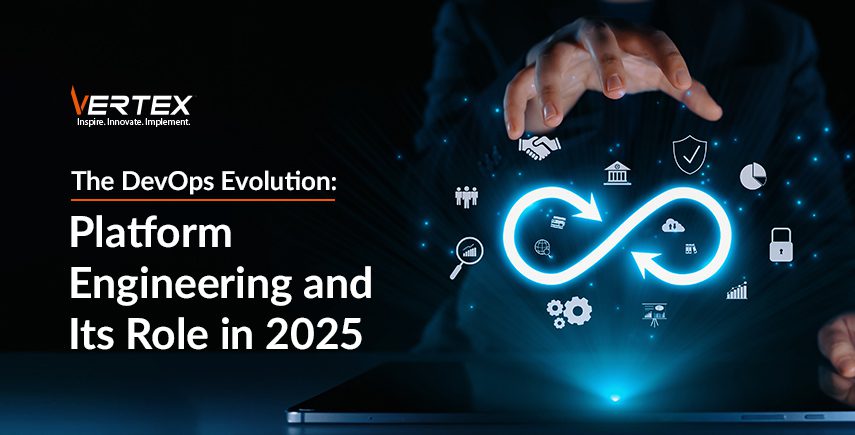
7 April, 2025
Recent News

2 February, 2025
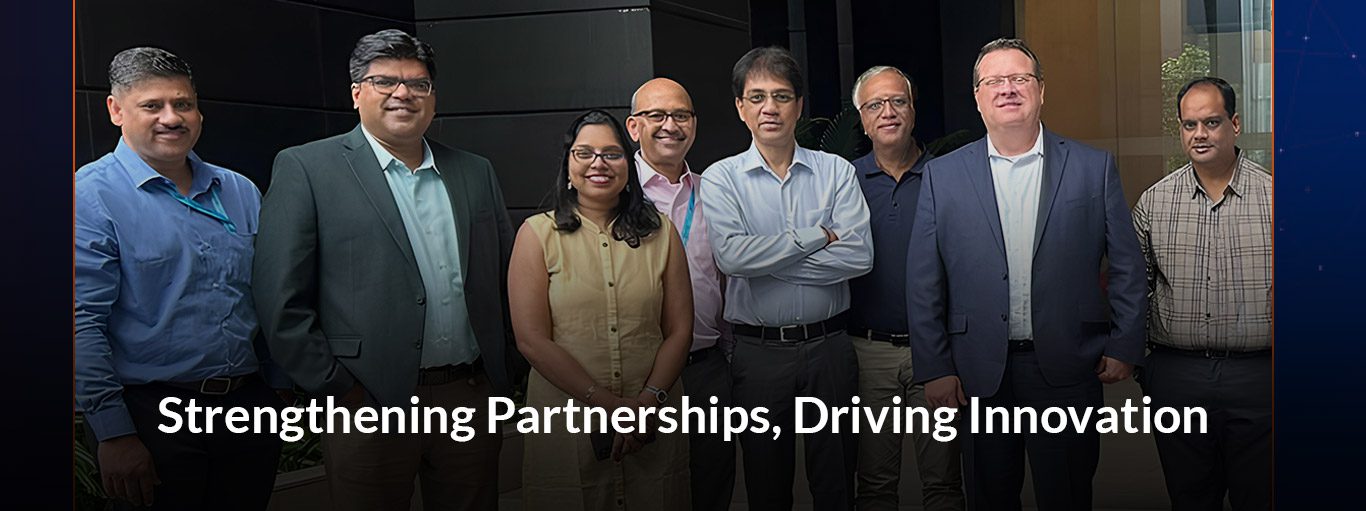
14 November, 2024
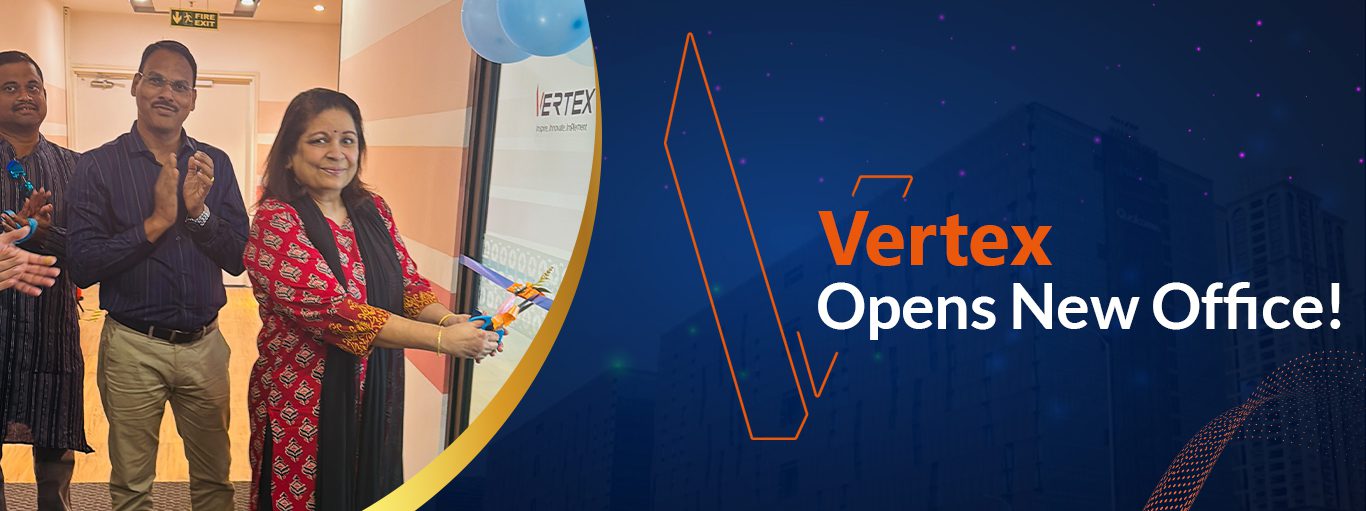
4 November, 2024
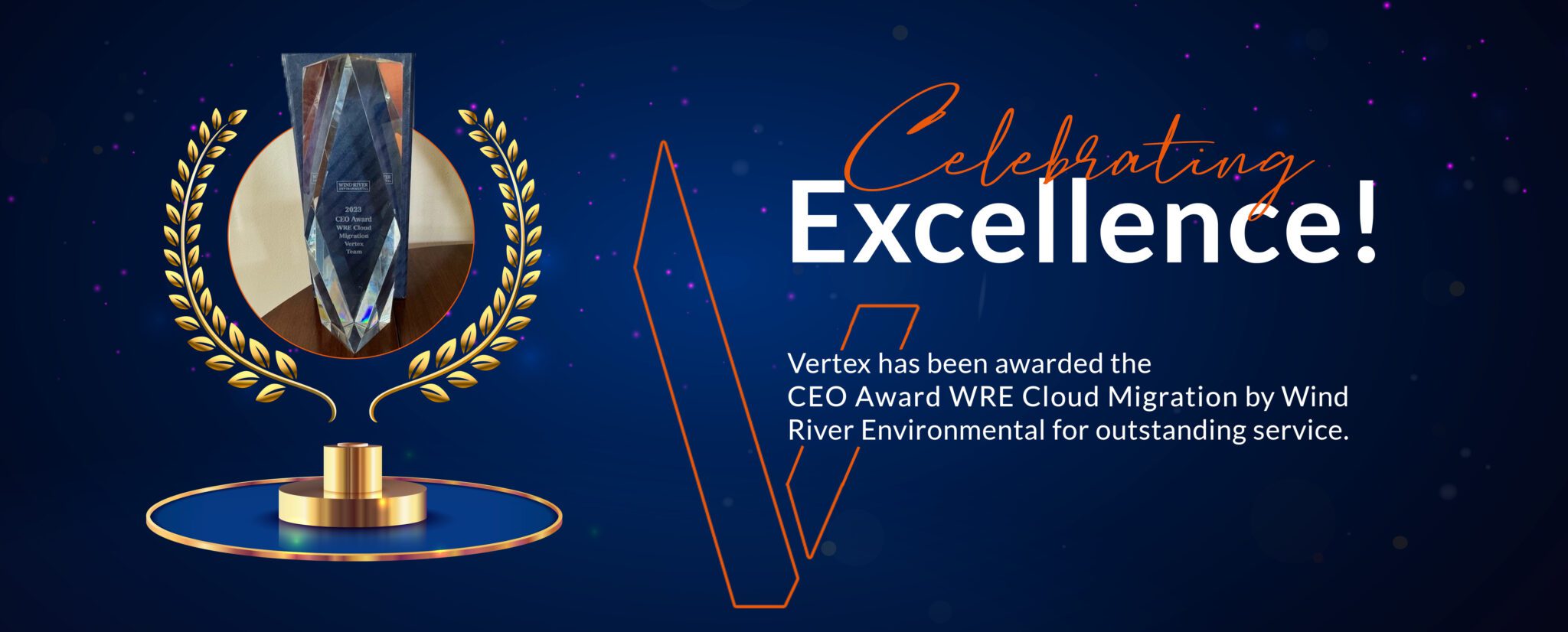
1 August, 2024
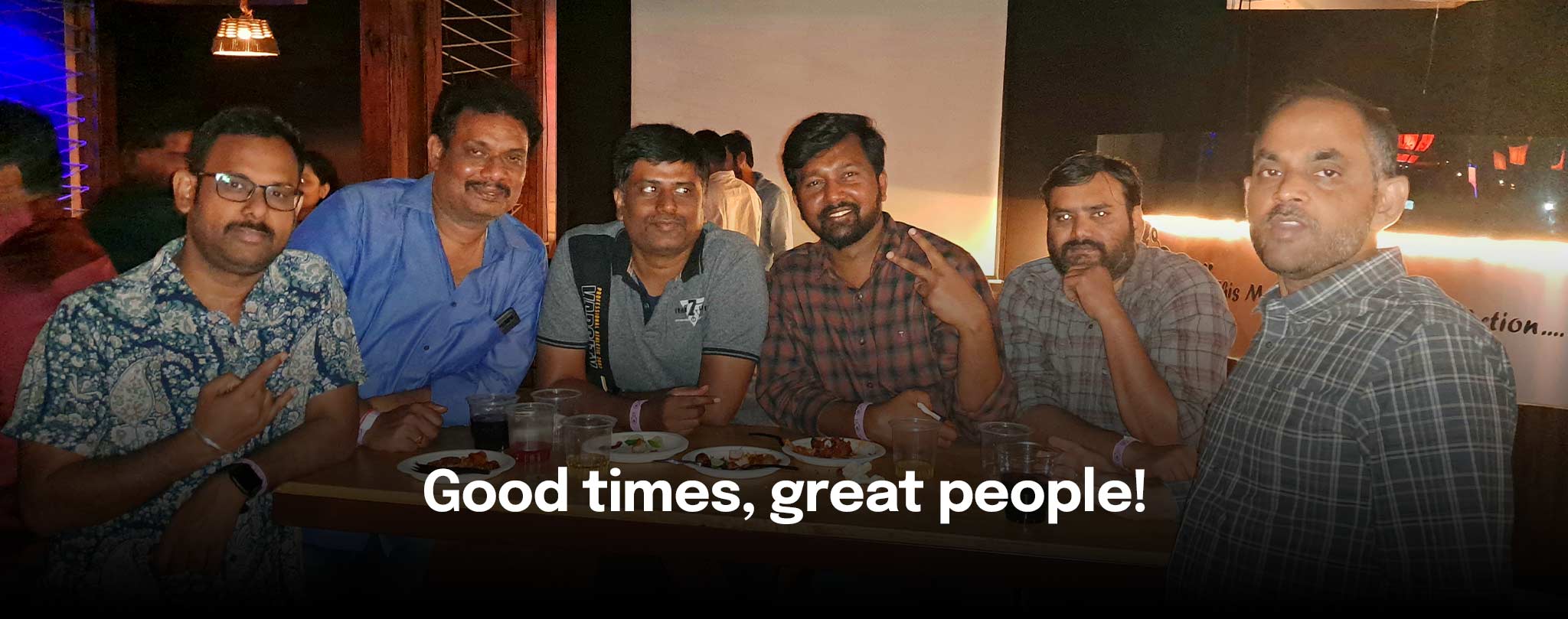
6 March, 2024

28 February, 2024

12 June, 2023
